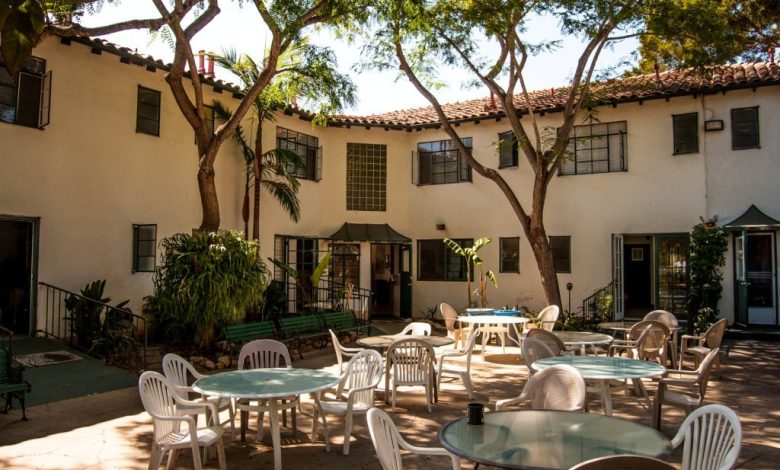10 Unique Benefits of a Sober House

What does a sober house mean?
A sober house, also known as a sober living home or halfway house, is a residential facility that provides a supportive and structured environment for individuals recovering from drug or alcohol addiction. It is intended to bridge the gap between an inpatient rehabilitation program and a return to independent living.
The primary purpose of a sober house is to offer a substance-free and safe living environment that promotes sobriety and assists individuals in their transition from addiction treatment to a more independent lifestyle. Residents of a sober house are typically individuals who have completed a formal rehabilitation program but still require ongoing support to maintain their sobriety.
Sober houses usually have a set of rules and guidelines that residents must follow, such as maintaining abstinence from drugs and alcohol, attending support group meetings, participating in household chores, and paying rent. They may also require residents to engage in vocational or educational activities to support their reintegration into society.
Living in a sober house can provide individuals with a supportive community of peers who understand the challenges of addiction recovery. It offers a structured and accountable environment where residents can continue to develop healthy coping skills, receive support from housemates, and work towards achieving long-term sobriety.
Who pays for sober living homes?
The payment for sober living homes typically comes from the residents themselves. Unlike inpatient rehabilitation programs that are often covered by health insurance, sober living homes are generally not covered by insurance. Therefore, individuals who choose to live in a sober house are usually responsible for the costs associated with their stay.
Residents typically pay rent on a monthly basis to cover the expenses of running the facility, including utilities, maintenance, and staff salaries. The cost of sober living homes can vary depending on factors such as location, amenities provided, and level of support offered.
In some cases, individuals may receive financial assistance for sober living homes through scholarships, grants, or subsidies provided by charitable organizations, government programs, or private foundations. These funding sources aim to support individuals who are committed to recovery but may face financial constraints.
It’s worth noting that specific payment arrangements and options may vary depending on the sober living home and the resources available in the community. Individuals seeking to enter a sober living home can inquire about the cost and payment options directly with the facility’s management.
How long can you stay in a sober living house?
The length of stay in a sober living house can vary depending on individual needs, goals, and the policies of the specific sober living house. There is no predetermined or fixed duration for residing in a sober living house, as it depends on factors such as the progress of the individual’s recovery, their level of stability, and their readiness to transition to independent living.
Some sober living houses may have a minimum or maximum length of stay requirements, while others may offer more flexibility. Generally, individuals stay in a sober living house for a period that allows them to solidify their recovery, develop essential life skills, and establish a foundation for independent living.
The duration of stay in a sober living house can range from a few months to a year or longer, depending on the individual’s progress and circumstances. It is important to note that recovery is a unique and ongoing process, and the length of stay in a sober living house should be determined based on the individual’s specific needs and the recommendations of their support network and treatment professionals.
Rules of a Sober Living Home
The rules of a sober living home can vary from one facility to another, but here are some common rules typically found in sober living homes:
1. Sobriety: Residents are required to maintain complete abstinence from drugs and alcohol. This rule is fundamental to creating a safe and supportive environment for recovery.
2. Regular Drug Testing: Random drug and alcohol testing may be conducted to ensure compliance with the sobriety rule. Testing helps to promote accountability and discourage substance use.
3. Attendance at Support Meetings: Residents are often required to attend support group meetings such as Alcoholics Anonymous (AA) or Narcotics Anonymous (NA). These meetings provide ongoing support and encouragement for sobriety.
4. Curfew: Sober living homes may have a curfew in place to ensure residents are accountable and adhere to a structured routine. Curfew times can vary but typically aim to support a healthy lifestyle and minimize the risk of relapse.
5. Household Responsibilities: Residents are expected to contribute to the maintenance and cleanliness of the house by participating in household chores. This fosters a sense of responsibility and shared accountability within the community.
6. Financial Obligations: Residents are generally required to pay rent and meet financial obligations promptly. The cost of living in a sober living home is usually the responsibility of the resident.
7. Employment or Education: Many sober living homes encourage residents to seek employment, enroll in educational programs, or engage in productive activities during their stay. This helps individuals rebuild their lives and develop a sense of purpose.
8. Prohibited Behaviors: Sober living homes typically have rules against engaging in disruptive or destructive behavior, such as violence, theft, or harassment. Respect for fellow residents and maintaining a peaceful environment are essential.
9. Visitors and Guests: Rules regarding visitors and guests may vary, but sober living homes generally have guidelines in place to ensure the safety and privacy of residents. Restrictions on overnight guests or limitations on visitor hours may be implemented.
10. Compliance with House Rules: Residents are expected to comply with all the rules and guidelines established by the sober living home. Non-compliance may result in consequences such as warnings, loss of privileges, or, in some cases, eviction.
It’s important to note that these rules serve to create a structured and supportive environment that promotes recovery and personal growth. The specific rules and expectations may vary depending on the sober living home and its philosophy. Before entering a sober living home, individuals are typically provided with a set of guidelines that outline the rules and expectations for their stay.
Benefits of a Sober Living Home
There are several benefits of check-in to a sober living home they include:
1. Supportive Community: Sober living homes offer a supportive community of individuals who understand the challenges of addiction recovery. Being surrounded by like-minded individuals who are also committed to sobriety can provide a sense of belonging, encouragement, and understanding.
2. Accountability: Living in a sober living home promotes accountability. Residents are expected to follow the rules and guidelines, maintain sobriety, attend support meetings, and contribute to the household responsibilities. This accountability helps individuals stay focused on their recovery goals.
3. Structured Environment: Sober living homes provide a structured and routine-based environment. Having a daily schedule with designated activities, such as support group meetings, therapy sessions, and personal responsibilities, helps individuals establish healthy habits and avoid the free time that can be conducive to relapse.
4. Safe and Drug-Free Environment: Sober living homes offer a safe and drug-free living environment. By eliminating the presence of drugs and alcohol, residents are shielded from triggers and temptations that could lead to relapse. This creates a space where individuals can focus on their recovery without exposure to substances.
5. Continued Support: Sober living homes provide continued support for individuals who have completed an inpatient rehabilitation program. It serves as a transition phase between a structured treatment setting and independent living, ensuring individuals have ongoing support during this critical period of adjustment.
6. Relapse Prevention: Living in a sober living home can significantly reduce the risk of relapse. The combination of a supportive community, accountability, and a drug-free environment helps individuals develop and strengthen relapse prevention strategies, coping skills, and healthy routines.
7. Emotional and Peer Support: Sober living homes offer emotional support from peers who have experienced similar struggles with addiction. Sharing experiences, challenges, and successes with fellow residents fosters a sense of camaraderie and understanding. This peer support can be invaluable during the recovery process.
8. Skill Development: Sober living homes often provide opportunities for skill development and personal growth. Residents may engage in vocational training, educational programs, or life skills workshops that help them acquire new abilities, enhance their employability, and build a foundation for a successful life in recovery.
9. Integration into Society: Sober living homes assist individuals in reintegrating into society. By encouraging employment, education, and productive activities, residents can gradually regain their independence and establish a stable and fulfilling life outside of addiction.
10. Long-Term Recovery: Perhaps the most significant benefit of a sober living home is its contribution to long-term recovery. By providing a supportive and structured environment, individuals have the opportunity to practice and reinforce the skills and strategies necessary for sustained sobriety. The extended duration of stay in a sober living home increases the chances of successful long-term recovery.
How To Find A Good Sober Living Home Near You
To find a good sober living home near you, consider the following steps:
1. Research and Gather Information: Start by conducting online research to identify sober living homes in your area. Look for reputable resources such as addiction treatment directories, government websites, or local recovery organizations that maintain a database of sober living homes.
2. Seek Recommendations: Reach out to addiction counselors, therapists, or healthcare professionals who specialize in addiction treatment. They may have recommendations or be aware of reputable sober living homes in your area. Additionally, consider asking individuals who have successfully completed addiction treatment or participated in sober living homes for their recommendations and insights.
3. Contact Local Treatment Centers: Reach out to local addiction treatment centers or rehabilitation facilities. They often have connections with or can refer you to trusted sober living homes in the area.
4. Attend Support Group Meetings: Attend local support group meetings such as Alcoholics Anonymous (AA) or Narcotics Anonymous (NA). These meetings provide an opportunity to network with individuals who may have knowledge of reputable sober living homes in the community.
5. Check Accreditation and Licensing: When considering a sober living home, check if they are accredited or licensed by relevant organizations or regulatory bodies. Accreditation from reputable agencies can provide assurance of quality and adherence to certain standards of care.
6. Visit the Facility: Once you have identified potential sober living homes, schedule visits to evaluate the facilities in person. During your visit, observe the cleanliness, living conditions, and overall atmosphere of the home. Speak with staff and current residents to gather insights and ask questions about their experiences.
7. Review the Rules and Guidelines: Request a copy of the rules and guidelines of the sober living home. Review them carefully to ensure they align with your recovery goals and expectations. Pay attention to the level of structure, support, and accountability provided.
8. Consider Cost and Financial Arrangements: Inquire about the cost of living in the sober living home and the payment options available. Understand the financial obligations and any potential financial assistance programs or scholarships that may be available.
9. Seek Additional Information: Don’t hesitate to ask for references or testimonials from former residents or professionals who have worked with the sober living home. Obtaining firsthand perspectives can provide valuable insights into the effectiveness and reputation of the facility.
10. Trust Your Instincts: Ultimately, trust your instincts and intuition when choosing a sober living home. Select a facility where you feel comfortable, supported, and confident in their ability to assist you in your recovery journey.
Remember, finding the right sober living home is an important decision. Take the time to research, visit, and ask questions to ensure you choose a reputable and suitable facility that aligns with your needs and goals in recovery.





